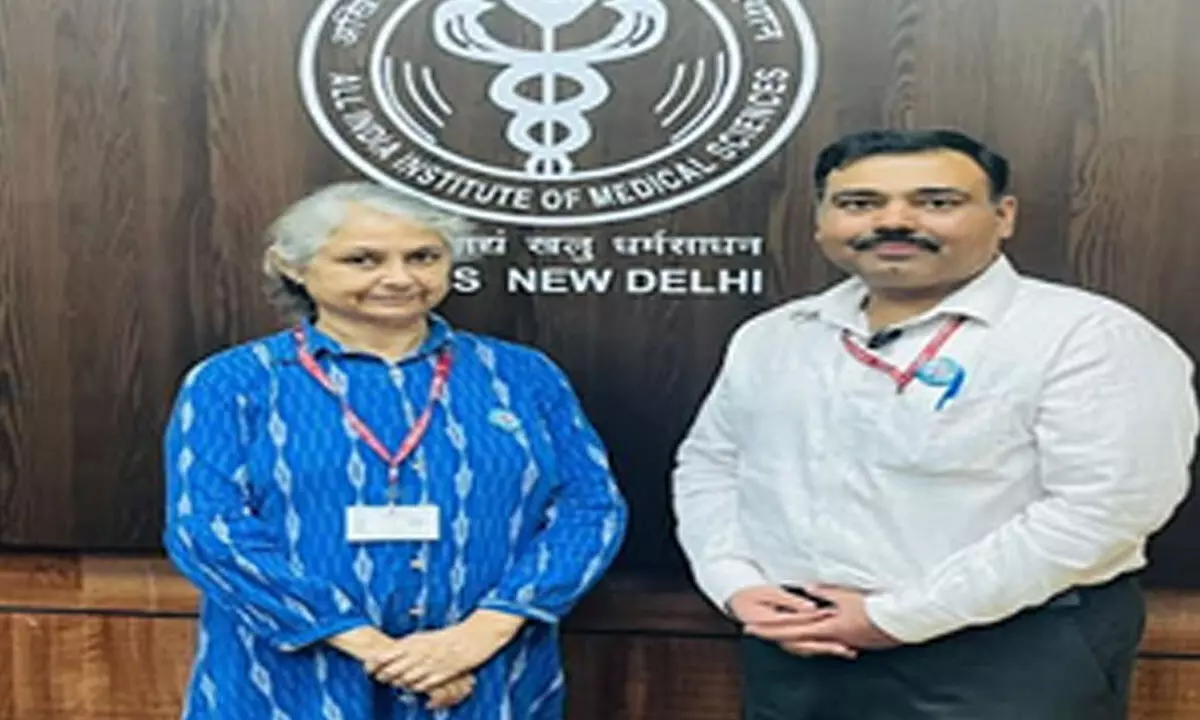Live
- Pant shatters Iyer's IPL auction record, sold to Super Giants for Rs 27 cr
- Yuva Sangeetha Sammelanam held
- Dharani proves a bane for 25K families across State
- Reckless, Dangerous Arms Race
- Russia needs a peace deal as it is running out of soldiers
- MyVoice: Views of our readers 25th November 2024
- Lack of planning, weak narrative behind MVA debacle
- UTF dist unit golden jubilee celebrations begin
- TSIC launches ‘Innovations 101’ coffee table book
- Drone technology for crime control
Just In
Rise in hypertension among young Indian children 'alarming': AIIMS

While age is a known risk factor for high blood pressure, the early onset of hypertension among young children -- up to 20 per cent -- is "alarming", said health experts here at All India Institute of Medical Sciences (AIIMS) on Friday.
New Delhi: While age is a known risk factor for high blood pressure, the early onset of hypertension among young children -- up to 20 per cent -- is "alarming", said health experts here at All India Institute of Medical Sciences (AIIMS) on Friday.
As May is marked as the hypertension awareness month, experts from the apex institute briefed the media about the rising cases of hypertension in the country, the reasons behind and how to mitigate it.
"About 15-20 per cent of children and adolescents aged between 10-19 have hypertension more than what is normal at their age," said Dr. Sumit Malhotra, Professor, Centre for Community Medicine at AIIMS.
"It is alarming," he added, noting that high BP is a major cause of brain stroke, myocardial infarction or heart attack, kidney disease, and retina problems, among others.
He said that in most cases, people are not aware of their blood pressure status, and those who are aware do not go for treatment. He emphasised the need to accurately measure BP and then treat them early.
"Schools and educational institutes are very important platforms for a healthy young generation, to help understand the risk, and make early lifestyle modifications," the doctor said.
Dr. Kiran Goswami, Professor, Centre for Community Medicine, AIIMS said that hypertension is a major modifiable risk factor, and accounts for most premature deaths in the country, especially in the younger population.
"If you can control your systolic and diastolic blood pressure by 10 millimetres of mercury, you can bring down about 20 per cent early risk of death by cardiovascular deaths. Stroke risks can be reduced by one-third," she said.
The experts said that besides genetic risks, early age tobacco intake, excess weight, physical inactivity, and sedentary lifestyle, are the major risk factors for high BP.
Stress is also a major risk factor, said Dr. Sumit.
"Educational institutions must teach the younger population on how to deal with stress. Pressures begin from a young age. How to cope with stress is an important life skill that must be taught to our young kids, and this will pay a long-term dividend in combating many situations, including early onset of non-communicable diseases (NCDs)," he said.
The experts called for practising a healthy lifestyle, eating more fruit and vegetables, and 30 minutes of aerobic exercises like brisk walking and cycling.

© 2024 Hyderabad Media House Limited/The Hans India. All rights reserved. Powered by hocalwire.com






